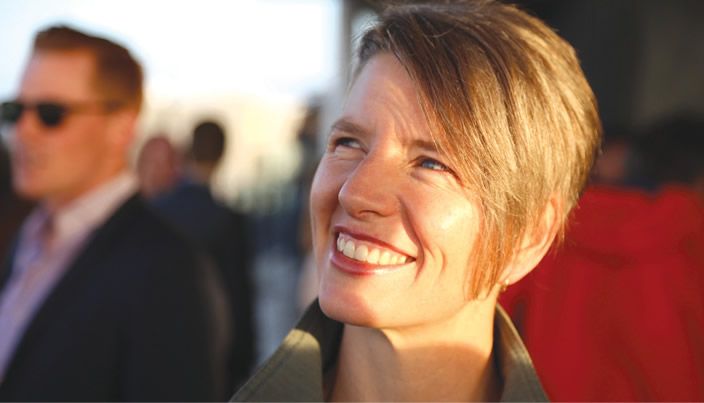
What on earth (pun intended) does going to Mars have to do with sustainability? Quite a lot, according to astronaut candidate and scientist Dianne McGrath, Journalist Sue Osborne writes.
McGrath is one of 100 global (seven from Australia) candidates to be chosen for the Mars One mission, which proposes a permanent settlement on Mars, departing 2031. Final candidates will be chosen at the end of this year.
Although she didn’t know it at the time, McGrath was preparing for life on Mars growing up in “red and dusty” outback Northern Territory, trying to survive where food was scarce.
She learnt to grow and hunt for her own food at age 11, which has given her a real appreciation for the challenges of obtaining food, something missing for many people who only know food as a plastic package from the supermarket.
Qualifying as a Mathematics and English teacher in 1991, McGrath has never taught formally in schools, but is a regular presenter at schools, talking about Mars and her quest to prevent food waste.
Now at the tail end of a PhD on food waste at RMIT, she has Chaired the Australian Government’s Retail and Foodservice Advisory Board providing input into the National Food Waste Strategy and appeared on and consulted to the ABC TV show War on Waste.
McGrath said she was on a domestic Qantas flight watching people being served their meals, and reading an inflight magazine about Oz Harvest, the food rescue organisation, when she hit upon the idea of researching food waste for her PhD. Her curiosity and interest in the Mars adventure are based around the challenges of living sustainably on another planet.
With no food, water or oxygen* easily available on Mars, living sustainably and recycling is a necessity not an option; and under space rules no waste can be left on a celestial body.
The research being undertaken to prepare for living on Mars is providing invaluable information that can be applied on Earth.
“We could reshape this planet by trying to work out how to live on another one,” McGrath said.
“Not everyone on this planet has easy access to food and water right now, so it’s exciting to see what we can learn from this mission.”
McGrath said the criteria for choosing candidates for the mission was not based on their scientific qualifications but on five personality traits: resilience, adaptability, curiosity, resourcefulness and trust.
McGrath said it was 'curiosity' about how such a mission could be achieved that drove her to apply.
With the possibility of living on Mars forever in 12 years time in the back of her mind, McGrath said she is more focused on achieving as much as she can now and making all her dreams a reality.
“That’s a message I take to schools, and to girls in particular, not to be limited by others on what your dreams are, and not to put your dreams on a shelf.”
McGrath said it was important for all students to see role models who were interacting with maths and science and putting them to use, and to hear the personal stories of those involved in science.
She believes exposure to such models at primary school age is crucial, to allow students to “be excited by science and apply it to their own personal interests”.
McGrath can be contacted via her website to speak at a school, and she is also available for professional in-services about team work.







































































































































